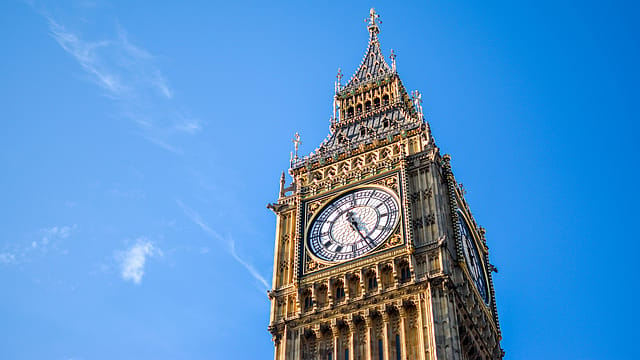No need to tread on egg shells – India and the UK after Brexit
ADVERTISEMENT

It was at Oxford this week that I overheard two suitably grey-haired dons explain the difference of a hard Brexit and “anything else”. It was, they said, “like the difference between getting a hard-boiled egg and a soft-boiled egg – no matter what, you still have to break the shell!”
The overwhelming sense of course is that no one really knows with certainty what Britain’s exit from the European Union will bring – except for one thing, there is a persuasive case to be made for deeper ties between the world’s sixth largest economy (India) and fifth largest (the United Kingdom or UK). There is an anticipation on the Indian side that, if the country can keep its pace to growth to around 8%, it might surpass the UK and become the fifth largest economy by 2019 or 2020 – but even if they swap places, the case for closer cooperation is hard to dispute.
The UK – India bilateral trade in 2017 was around $23 billion (₹1, 453 bln) and UK is the fourth largest investor into India while India is the third largest investor into the UK. Around 80% of the masala bonds issued till date have happened on the London Stock Exchange (worth more than $3.9 billion). The 1.5 million strong Indian community in the UK brings in 6% of the GDP (gross domestic product) of the UK. The British government runs its most expansive scholarship schemes for students in India. Whether to holiday in summer (or even to evade taxes) London is the natural home for Indian business people.
In fact, such is the pull of London in summer that it is an old joke that if you if want to meet anyone important in the Indian government between May and August, look for them in London.
But beyond the numbers, as the research of academics like Oxford’s Kate Sullivan de Estrada and Rajesh Basrur of the Nanyang Technological University has shown, India is at a time in its contemporary history where it is finally acquiring enough material strength to seek real power and status in the world. This ‘status seeking’ nature of a rising power looks for arenas of influence which it doesn’t have to share with too many rivals.
For India, as Harsh V. Pant from the King’s College, London, has pointed out, the Commonwealth group of nations is a natural playground for such status seeking. It is one of the most influential and the largest in sheer size among the 53 nations in this group. It is a club where India does not have to jostle with China for power stakes or live under the shadow of America (the U.S. has never been part of the Commonwealth even though it was of course at one point a British colony). It is a grouping from every region of the world which India wants deeper economic ties with – like nations in Africa – or has growing strategic interest, like in South East Asia and Oceania (India and Australia are part of the ‘Quad’ security grouping).
Indian Prime Minister Narendra Modi in a sense rekindled India’s interest in this grouping by attending the Commonwealth Heads of Government Meeting in London earlier this year after several years of Indian absence.
Some of the Commonwealth areas overlap with what India increasingly sees as its area of influence – the Indian Ocean region. This is some of the most important hubs of its ‘necklace of diamonds’ strategy lies. As China reaches deeper and deeper into Central Asia to sweep across a land route of enormous influence all the way to Europe through its ambitious Belt and Road Initiative, finding new areas of influence to balance Chinese influence is critical to India’s interests. As an old and established power, and irrespective of its current tumult, the UK has much to a rising India – including strategic support in areas of intelligence-sharing.
Brexit or not, London is unlikely to lose its influence as the world’s trading hub anytime soon – especially for India, it is perfectly poised, deep in the heart of the West but only about half the distance compared to New York.
And with election season fast approaching, even if, in the short-term, Prime Minister Modi could get the British government to further squeeze Indian economic fugitives in, or passing through, London, it would bring campaigning dividend back home in India.
As they say, you can’t make an omelette without breaking some eggs. And what’s a good ‘full English’ breakfast without some nice fried eggs?